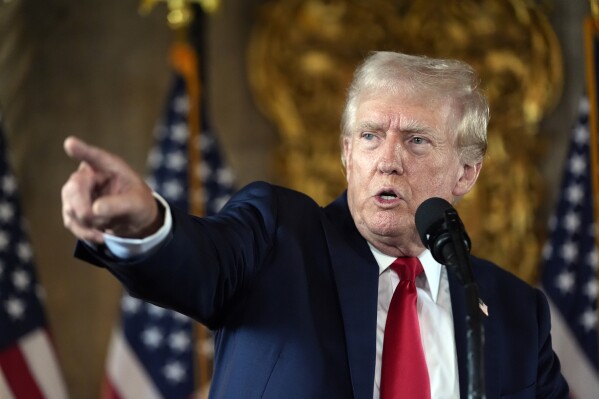Politics
Trump Orders U.S. Embassies to Reject Visa Applications of ‘Fat Nigerians’ Other Nationals
U.S. President Donald Trump has directed American embassies to deny visa applications from “fat Nigerians” and other overweight foreigners…

- U.S. President Donald Trump has directed American embassies to deny visa applications from “fat Nigerians” and other overweight foreigners, citing concerns that applicants with obesity-related health risks could “overburden” the U.S. healthcare system.
U.S. President Donald Trump has ordered American embassies and consulates worldwide to begin rejecting visa applications from foreigners classified as “grossly overweight,” including Nigerians, under a controversial new health-based immigration directive.
Speaking via his Truth Social platform on Tuesday, Trump clarified that while slightly overweight individuals would not be affected, those whose weight-related illnesses could strain the U.S. healthcare system may be denied entry.
“We will not ban all fat people from entering our Great Country — only those whose poor health will overburden our healthcare system,” — Donald Trump, via Truth Social.
He added that applicants deemed “grossly overweight” would need to trim down to get approved.

Trump also announced plans to extend the rule to U.S. expatriates, saying, “We will EXPAND this rule to cover expats in the near future. Rosie, you will never return to This Great Country.”
This policy comes shortly after Trump revealed a “fat shot” deal with pharmaceutical companies to lower the cost of weight-loss drugs such as Ozempic and Zepbound.
According to The New Republic, a State Department directive has been circulated to embassies worldwide instructing consular officers to consider an applicant’s health, weight, and chronic conditions when assessing visa eligibility.
DON’T MISS: IPOB Leader Nnamdi Kanu Challenges Supreme Court Over Alleged ‘Error in Law’
Medical conditions cited in the directive include cardiovascular disease, diabetes, metabolic disorders, respiratory illnesses, and mental health conditions, which could require expensive, long-term care.
“Does the applicant have adequate financial resources to cover the costs of such care over his entire expected lifespan without seeking public assistance?” the memo reportedly asks.
Critics argue that the policy is discriminatory and fatphobic, disproportionately affecting applicants from poorer nations like Nigeria, where obesity and related diseases are rising amid limited healthcare infrastructure.

Supporters, however, claim it is a taxpayer-protection measure, designed to reduce the potential medical burden on U.S. citizens and prioritize “healthy, self-sufficient immigrants.”






















